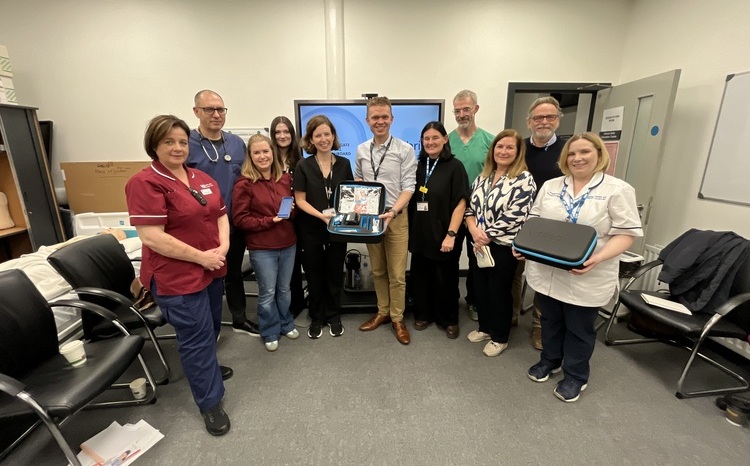LSPs fail ‘acid test’ on PAS deployments
- 30 October 2006
Delivery of the patient administration systems due to form the foundation for future electronic patient records in NHS hospitals has stalled with only a fifth of the systems promised in June actually installed.
In June NHS Connecting for Health said that 22 acute NHS trusts would get new PAS systems by the end of October. With just one day left, only four have actually been delivered, and in three of the five clusters none have been installed.
Just four months ago NHS Connecting for Health told Commons Public Accounts Committee member Richard Bacon MP that its local service providers (LSPs) would install new PAS systems in 22 hospital trusts by the end of October. London was not included in the October target.
Bacon told E-Health Insider that the 31 October PAS target was “a very clear test of the ability of the programme to do what it said it would.”
The Conservative MP added: “It’s an acid test in terms of what the programme is doing on hospital PAS deployments. We’re not even talking here about clinical deployments.”
He said that he had written to Richard Granger, chief executive of Connecting for Health (CfH) in August asking for an update on progress, and had received no response. Bacon told EHI he has now written to health secretary Patricia Hewitt asking what deployments had since taken place.
EHI’s investigations indicate that just four trusts have gone live with new PAS systems since June, at least one of which is a very limited implementation so far. The four are: Robert Jones and Agnes Hunt and North Cheshire Hospitals NHS Trusts in the North West, together with Weston and Mid and South Bucks NHS Trusts in the South.
No acute PAS implementations have occurred for more than six months in three of the clusters: London, the North-east and Eastern.
In June, BT, the LSP for London, had pledged to deliver new PAS systems to three unspecified acute trusts by the end of December. No new implementations have since occurred and with BT currently negotiating to replace its clinical software supplier it looks like a prediction highly unlikely to be met.
Similarly, no new hospital PAS systems are believed to have been delivered in either the North east or Eastern clusters. LSP Accenture had been due to implement four of the iSoft iPM patient administration systems, at Northampton, Airedale, Weston Park and Ipswich.
However, progress on acute implementations in the two clusters effectively ended in July as Accenture, the then LSP, became embroiled in contract negotiations with CfH. These contractual wrangles culminated in Accenture’s departure from the programme, due to be replaced in January 2007 by Computer Sciences Corporation.
One of the four trusts Accenture had been due to implement at, Weston Park, part of the Sheffield Teaching Hospitals NHS Foundation Trust, pulled out of installing the CfH offered iPM system following a review by a project review team which found that the system was not, in its opinion, “fit for purpose” and created “clinical risks”, due to a series of performance issues.
The LSP which said it would achieve the most deployments by the end of October was Fujitsu, prime contractor in the South. Having completed its first Cerner implementation in December 2005, it offered a bullish forecast saying it would deliver four implementations by the end of August, rising to 12 by the end of October.
In the event just two, Weston and Mid and South Bucks, have occurred since. The remainder of the projects either postponed or delayed at short notice. Milton Keynes has twice had go live dates cancelled at less than a weeks notice.
A spokesperson for Fujitsu told E-Health Insider: “In June, it was jointly agreed by Fujitsu and NHS Connecting for Health, that 12 acute deployments would take place by the end of October 2006 – although it was recognised that there were a number of changes in the pipeline which might lead to dates moving.
They added that most of the work required for the acute deployments had now been completed. “Most of the work that was planned for the 12 acute deployments listed in June has been completed and several more are now virtually ready to go live. At the same time a number of system changes – improvements and fixes – are being implemented.”
The Fujitsu spokesperson told EHI that required improvements and fixes reported have led to delays in implementations going ahead as planned. “Because of the delays, the implementation schedule has become congested and replanning is underway. For this reason, it is expected that some of the currently planned dates may move further.”
Fujitsu insist that they have always said that dates may move and added: “There are programmes to install Cerner Millennium at more than 30 Trusts in the South and preparation work has continued with great energy across all these programmes.”
CSC committed to implementing six iPM iSoft systems at hospital trusts by the end of October. Since June one hospital, The Robert Jones and Agnes Hunt Orthopaedic and District Hospital NHS Trust, has successfully gone live across an entire hospital trust. In addition, North Cheshire Hospitals NHS Trust has received a PAS system, but this is so far only used in physiotherapy and occupational therapy.
The other four go-lives that had been predicted have since stalled or been delayed and CSC have confirmed they will not meet their prediction. A spokesperson told EHI: “A small number of trusts within the North West and West Midlands cluster have opted to revise their dates to await future software release.”
However CSC told EHI that they have previously implemented systems elsewhere in the North West and West Midlands and hope to be able to deliver most of their promised systems by the end of the calendar year.
“The following CSC acute trusts have gone live – Birmingham Children’s, University Hospital Birmingham, Royal Orthopaedic Hospital, Morecambe Bay Acute, Hereford, Birmingham Women’s Hospital, North Cheshire, Robert Jones & Agnes Hunt and Withington all of which are Acutes using CSC deployed iSoft systems.
The CSC spokesperson added: “There are also a further nine acute trusts using theatre systems these are – Central Manchester & Manchester Children’s, Trafford, Bolton, Tameside, Stockport, Royal Liverpool & Broadgreen, St Helen’s & Knowsley, Blackpool and Morecambe Bay”
CSC also recently signed a deal to install the system at Bradford Teaching Hospitals NHS Foundation Trust and will be take over as LSP from Accenture, as LSP in the North east and Eastern clusters in January 2007.
CSC refused to comment on the changes that were being prepared for when they take over Accenture’s work but confirmed they were in discussions on timetable in the two clusters, taking into consideration its current schedule for the North West and West Midlands.
CfH meanwhile directed EHI to its 12 week forecast deployment forecast and said: “The recent reorganisation of primary care trusts, strategic health authorities and ambulance trusts has required detailed work to be carried out on the NHS Connecting for Health reporting systems. As a result, these deployment statistics will not be updated between 16 October and 30 October 2006.”
At the time of going to print, EHI had not had not received an official response on how many trusts had gone live or any clarification of why almost four fifths of the trusts had experienced these delays.
Link




